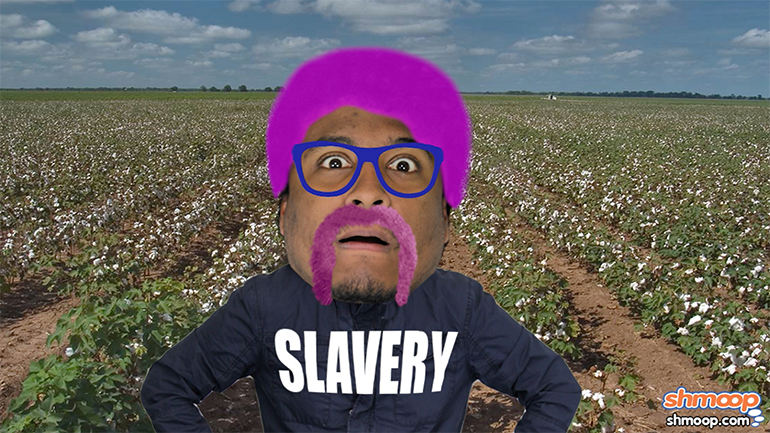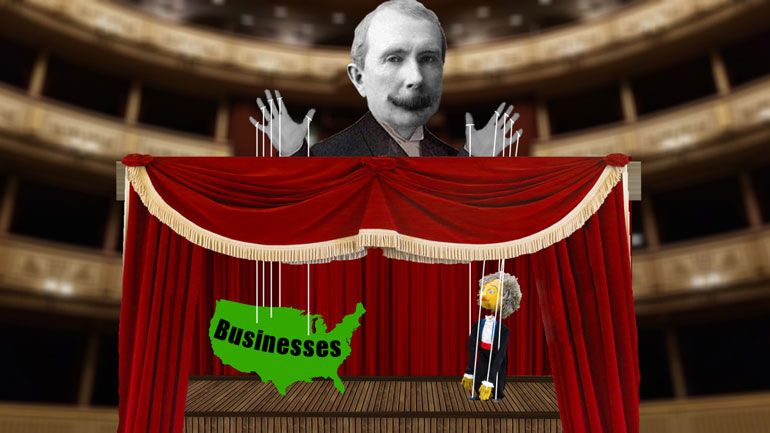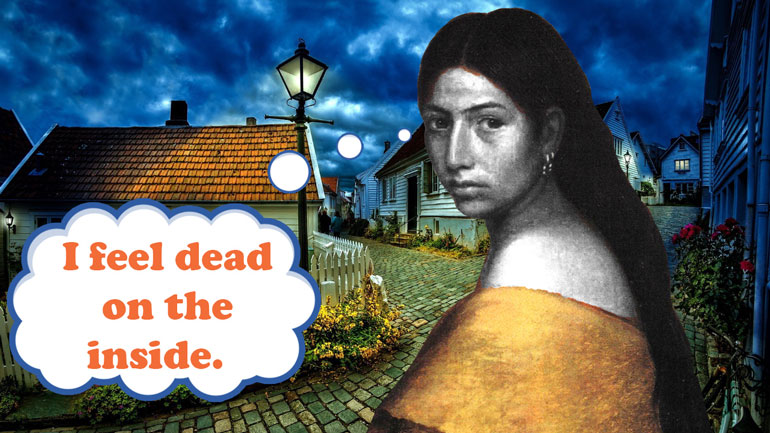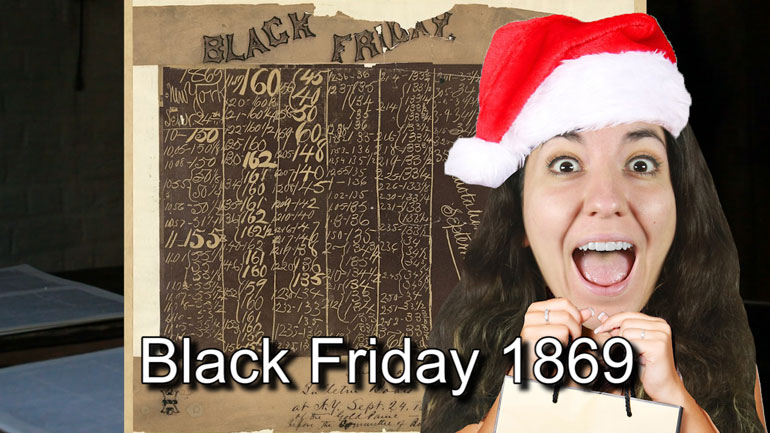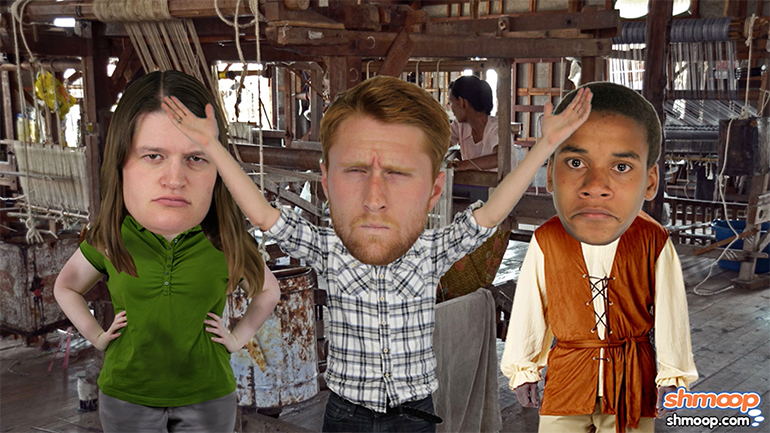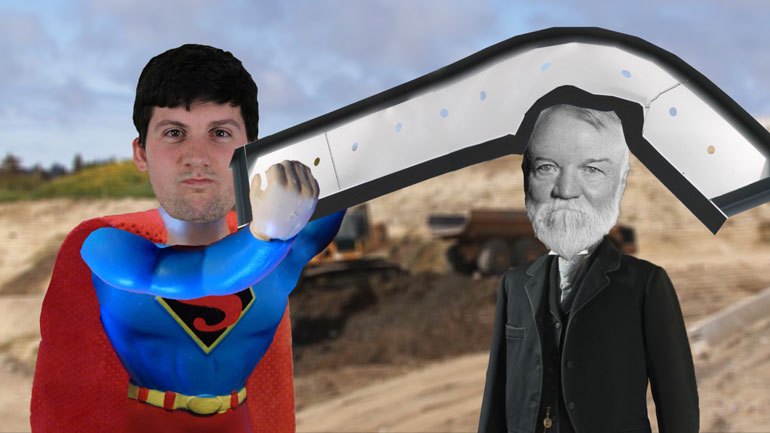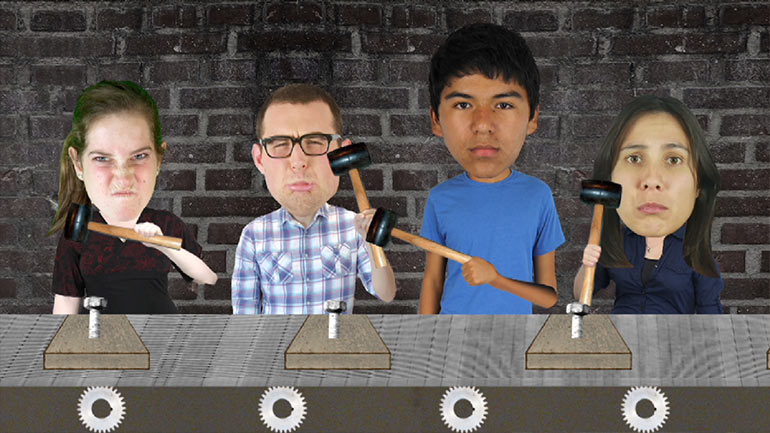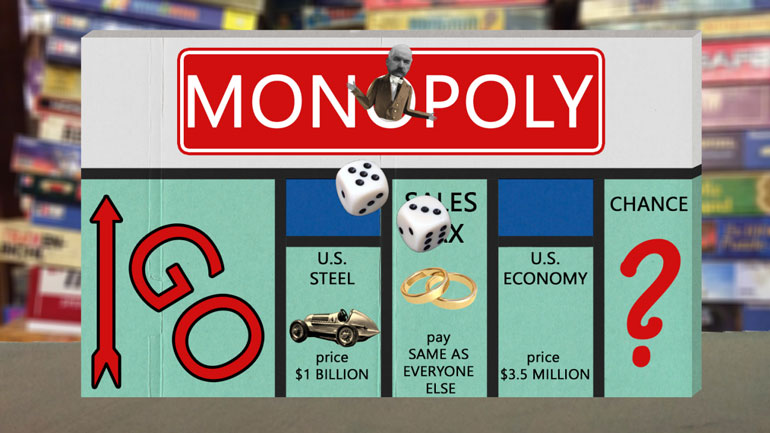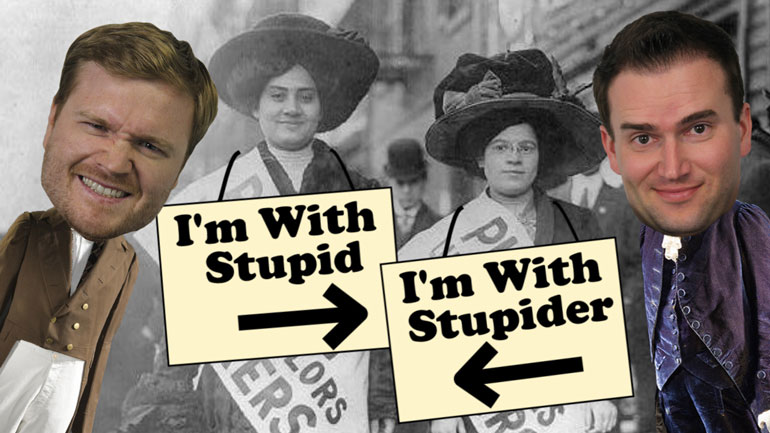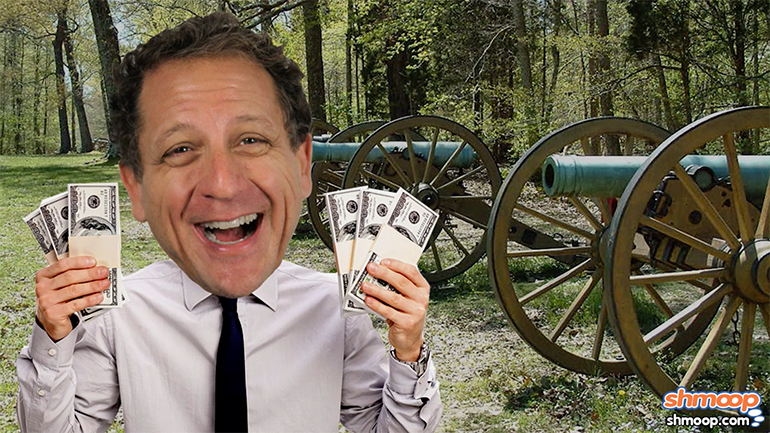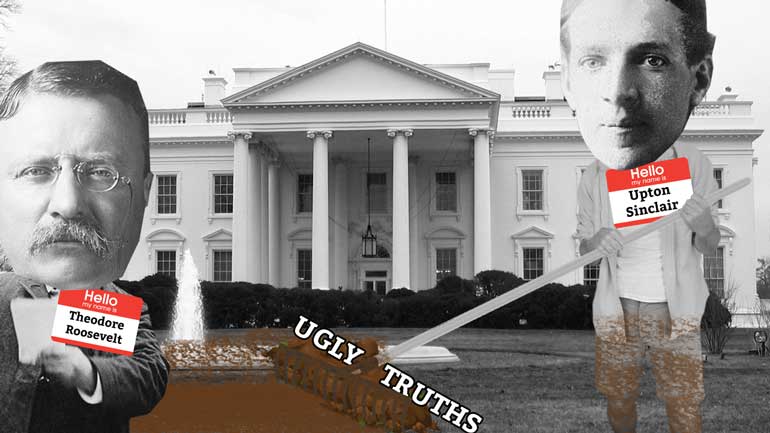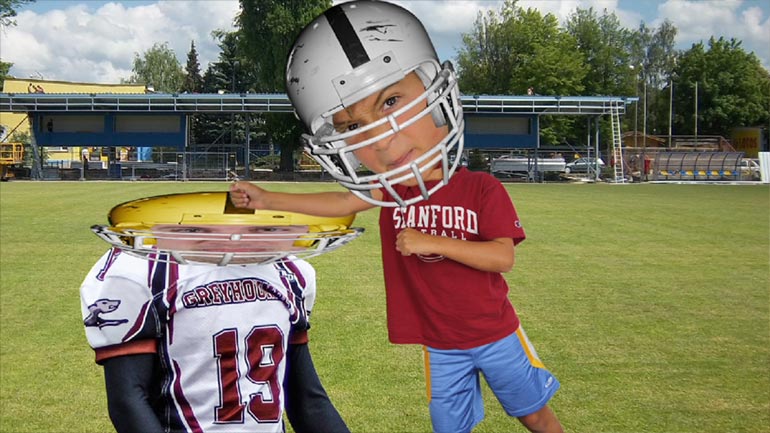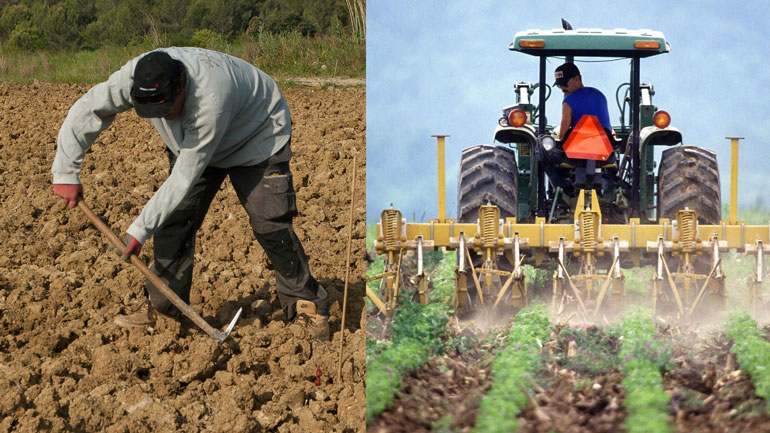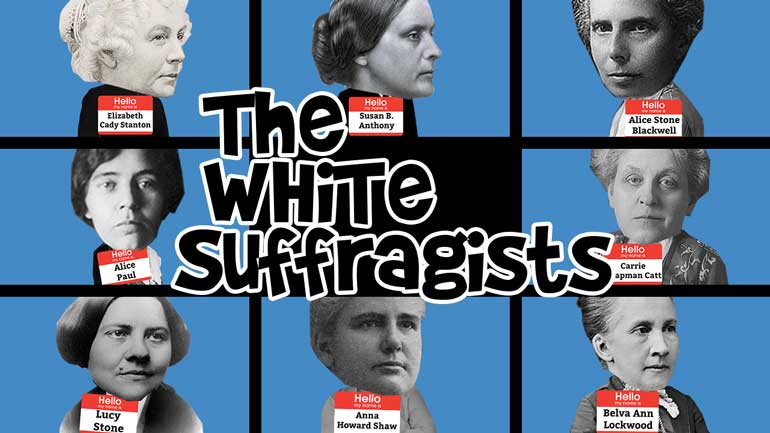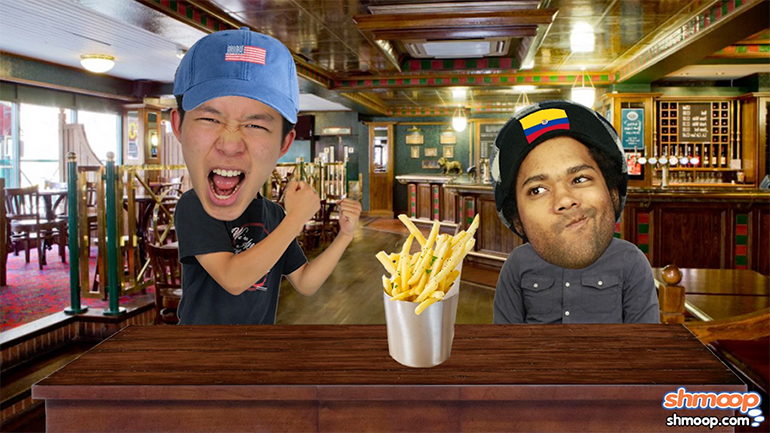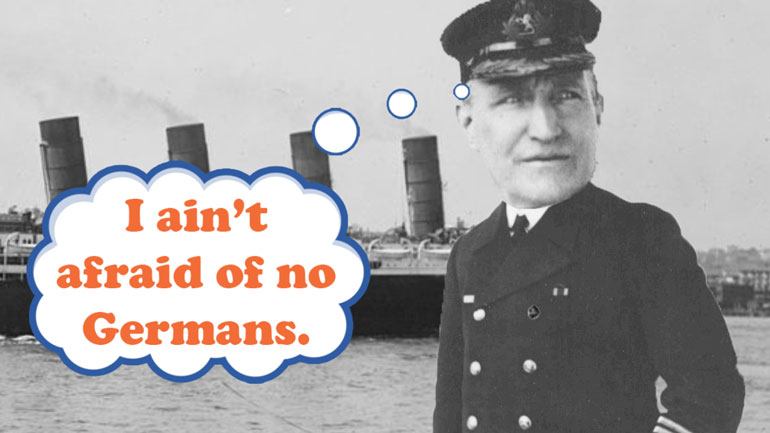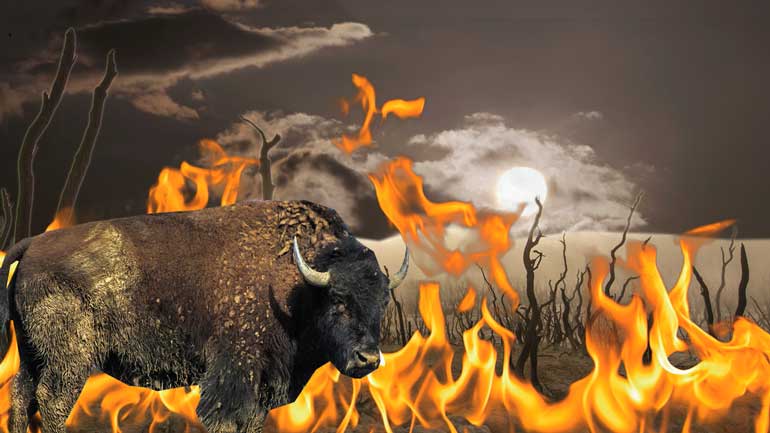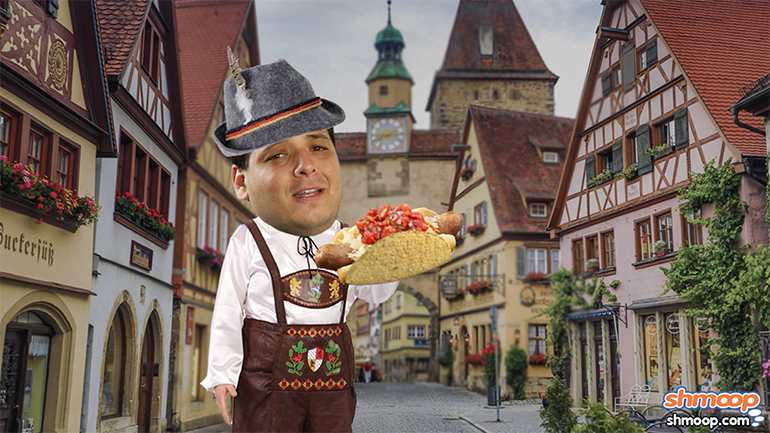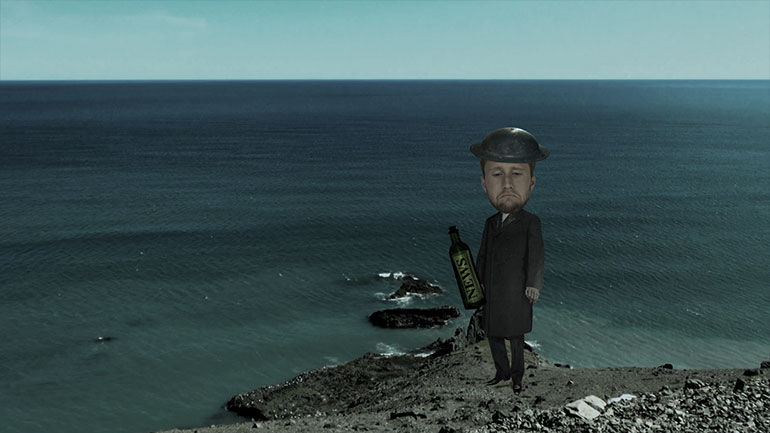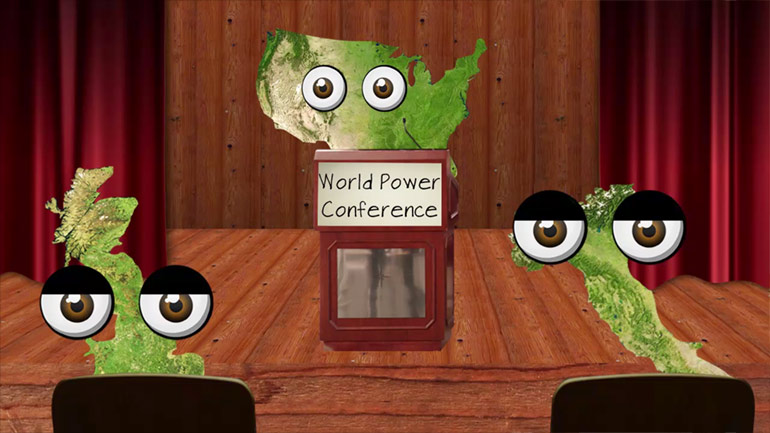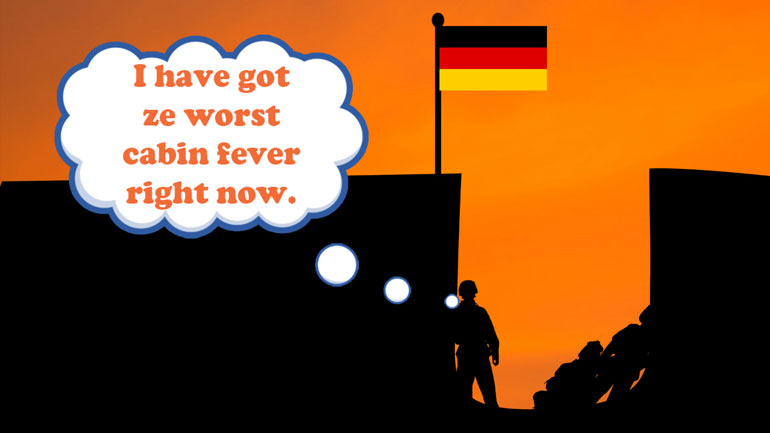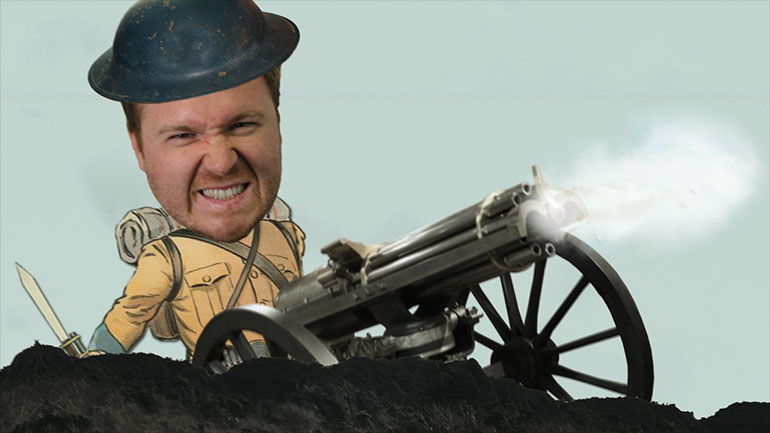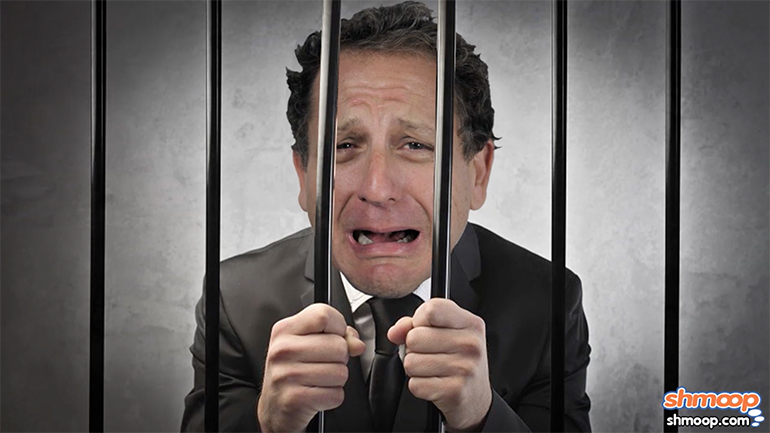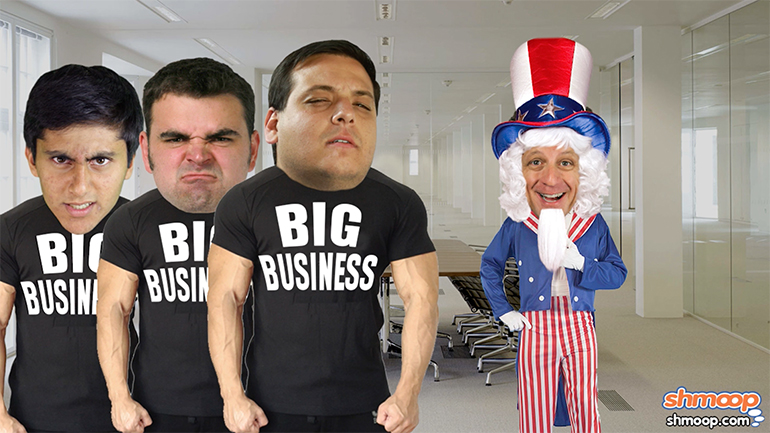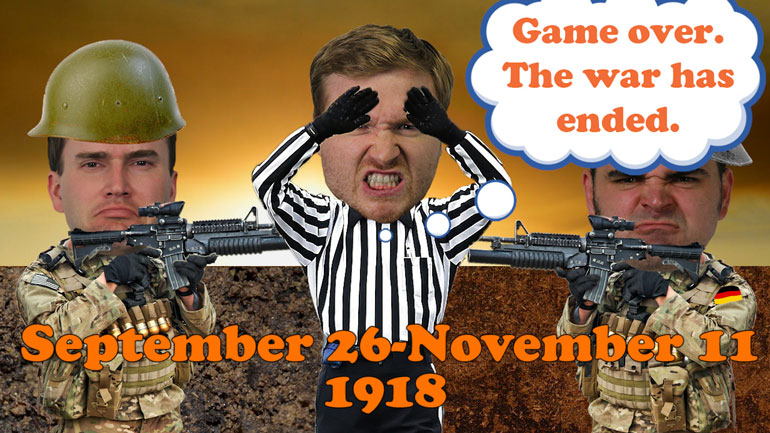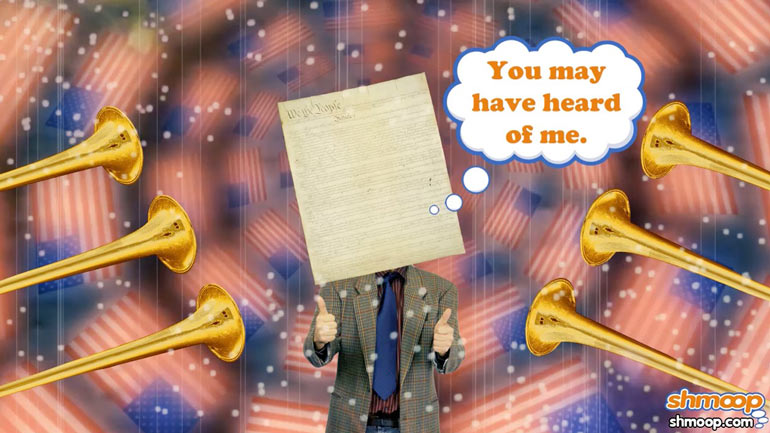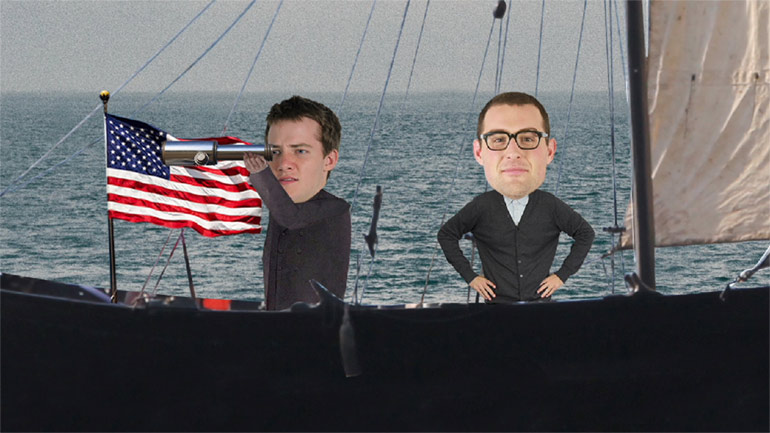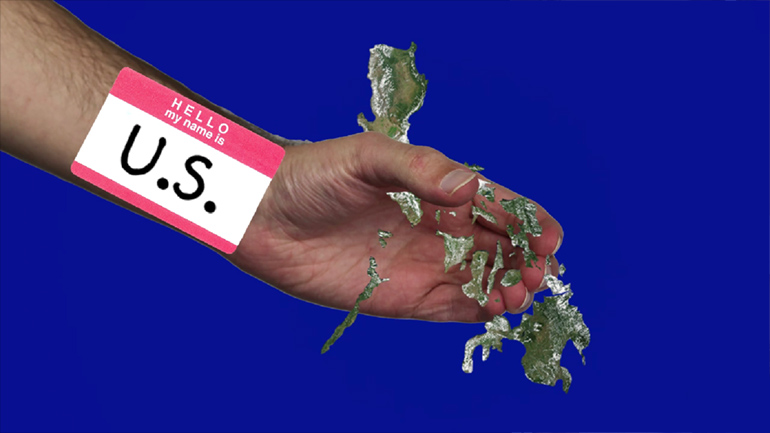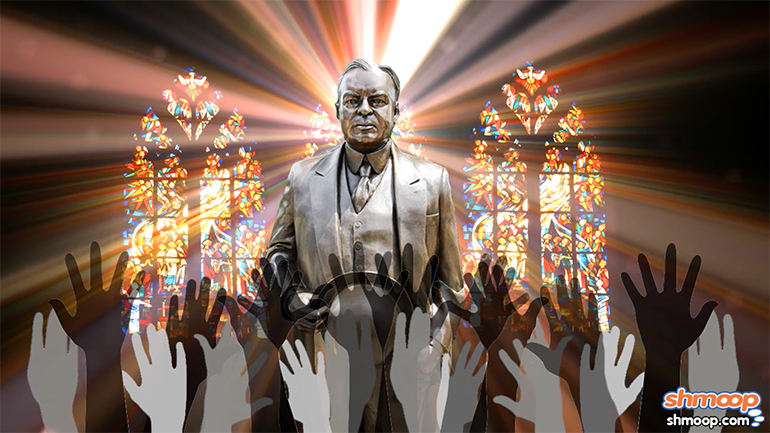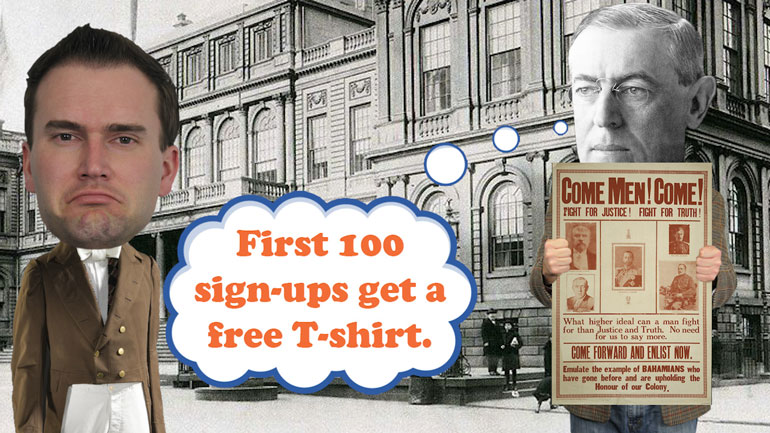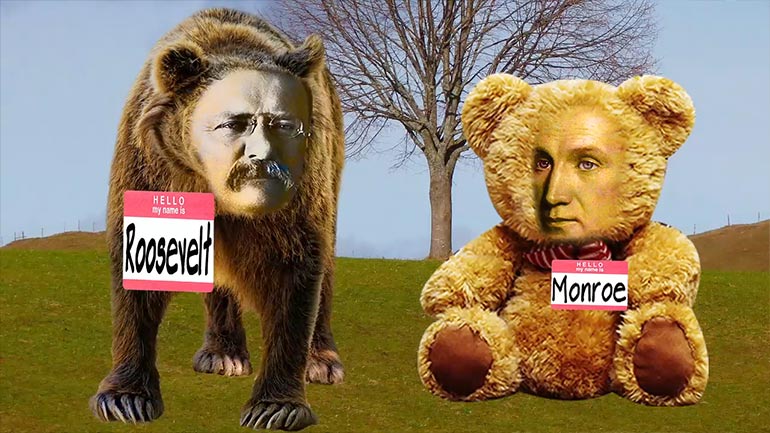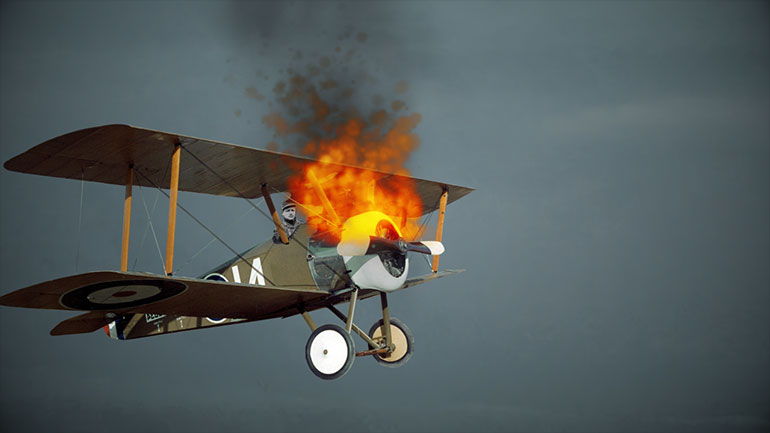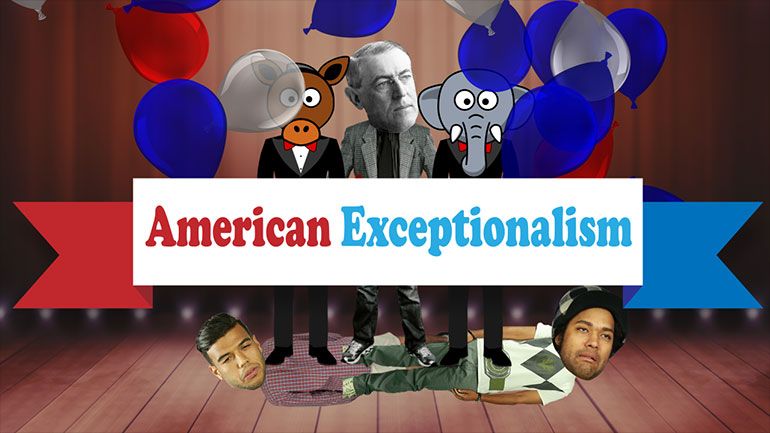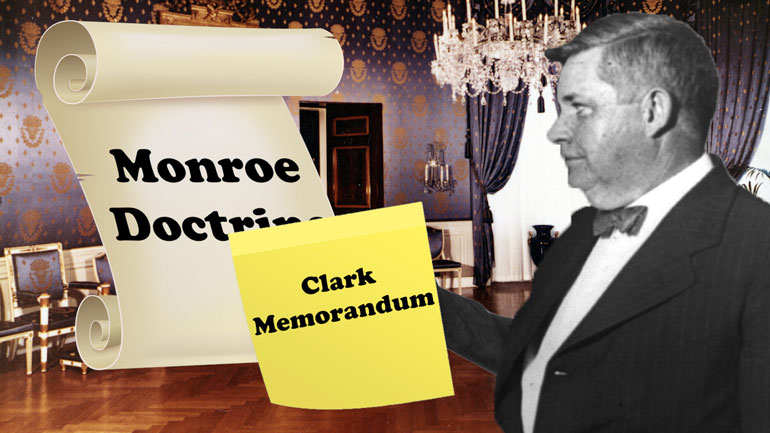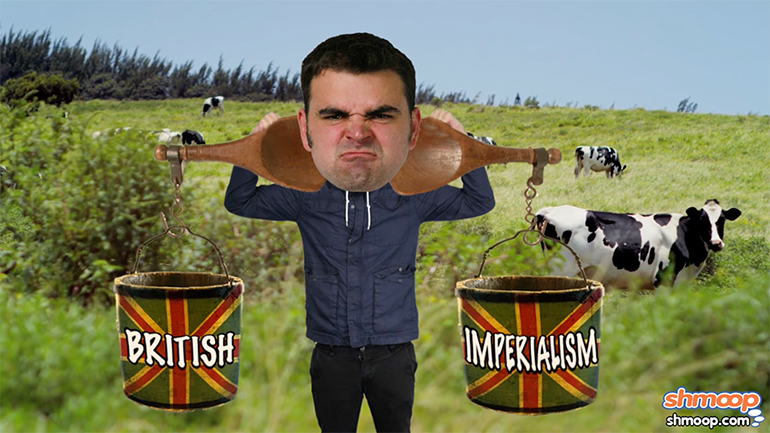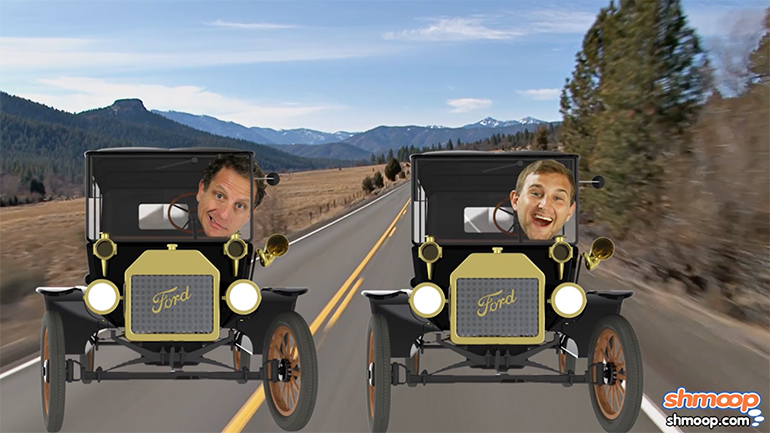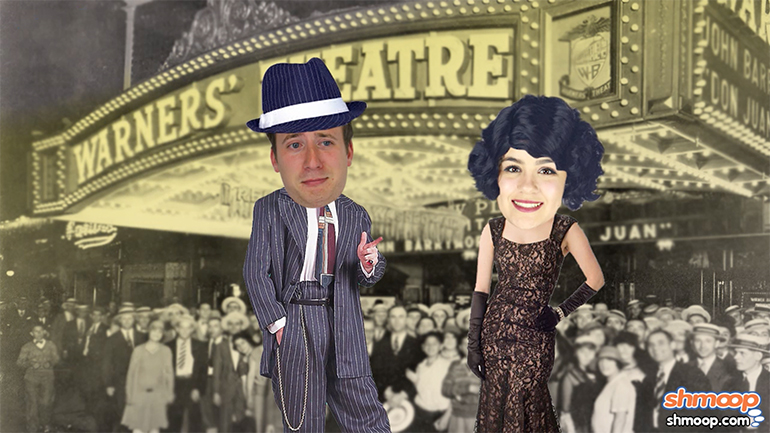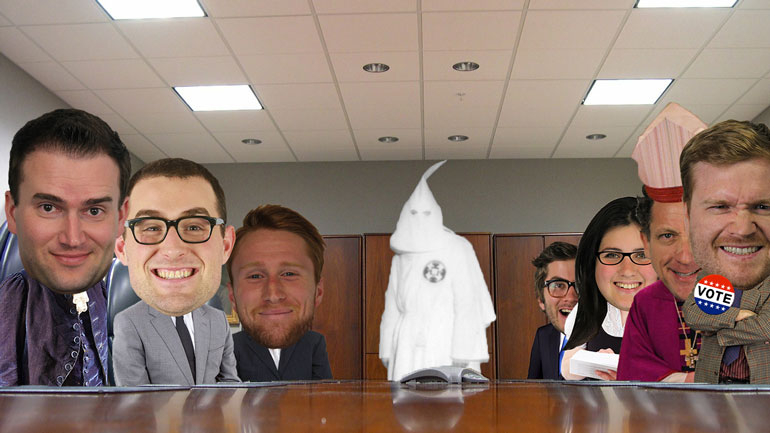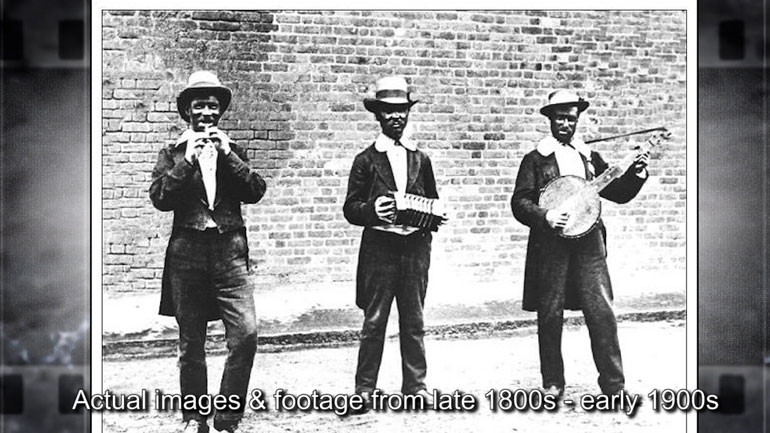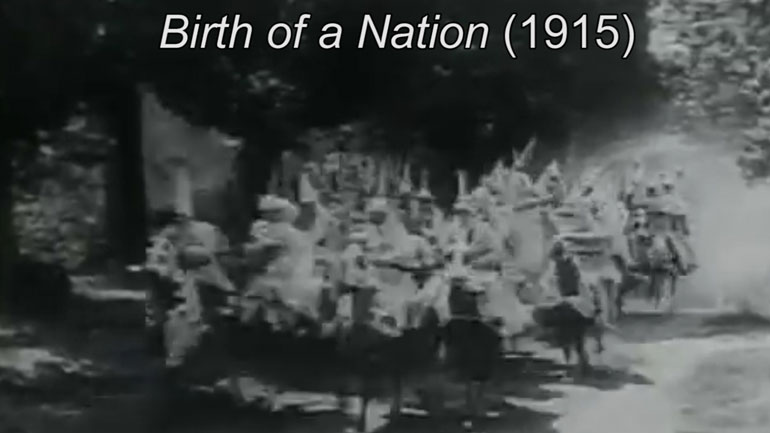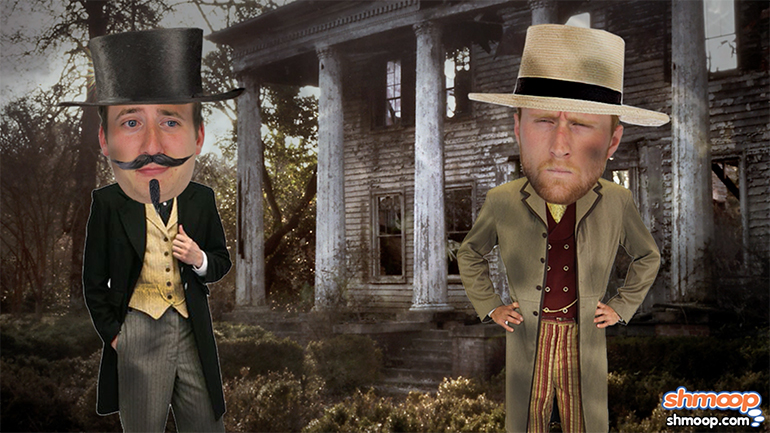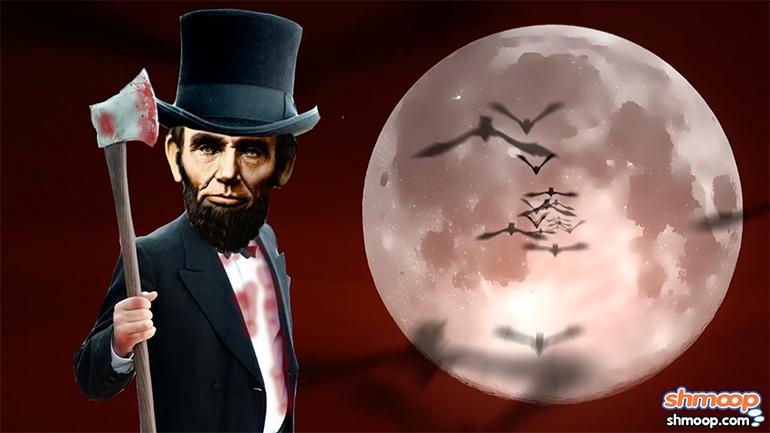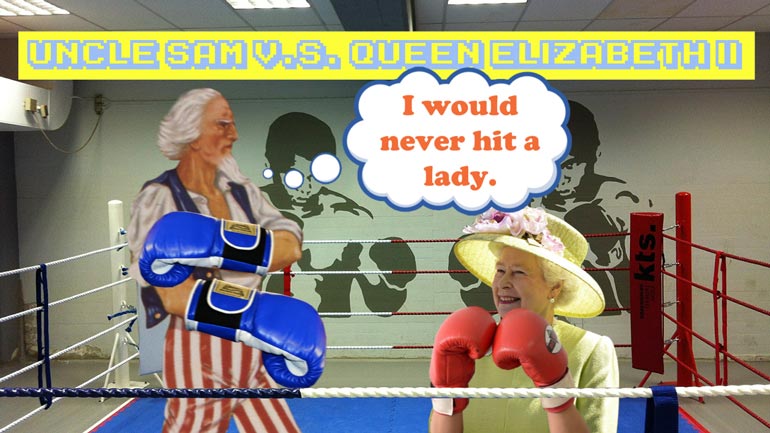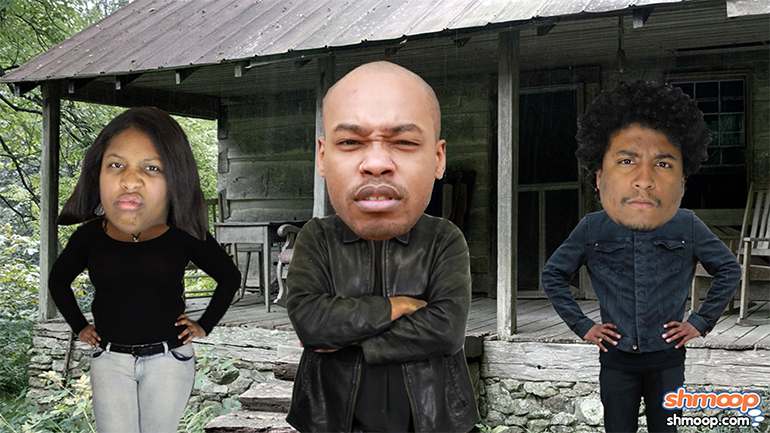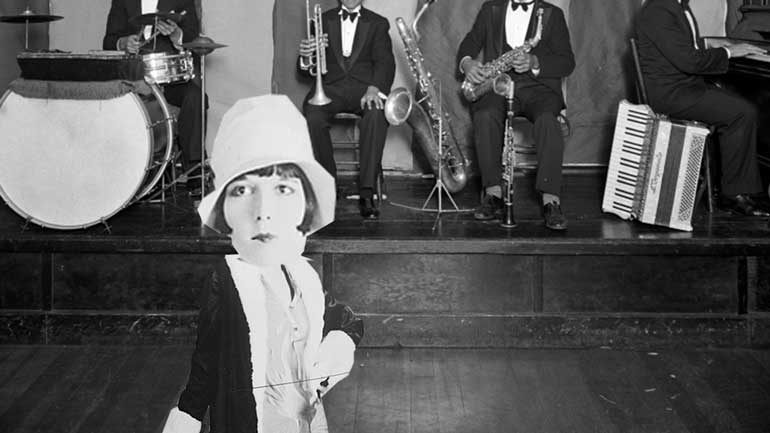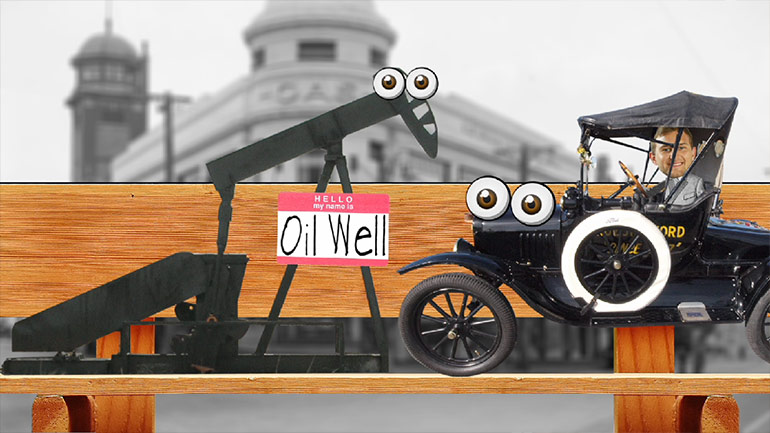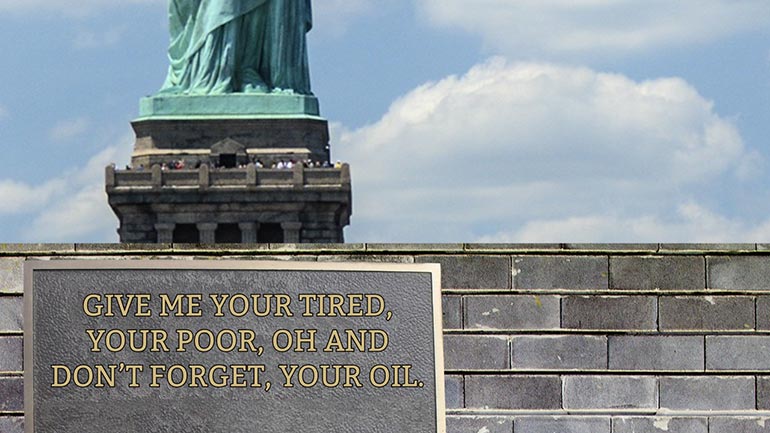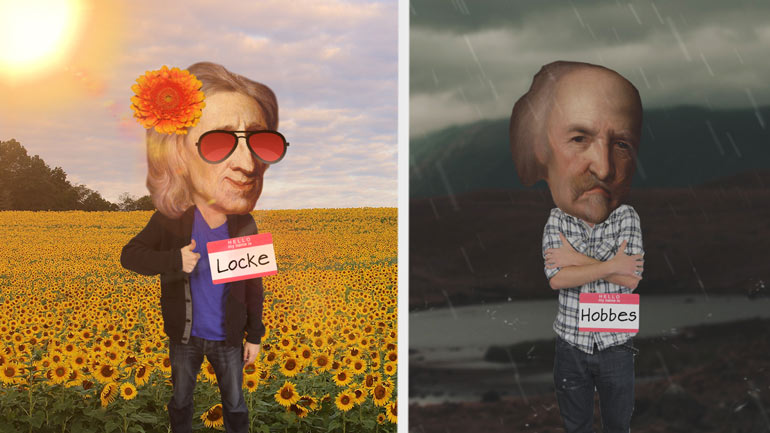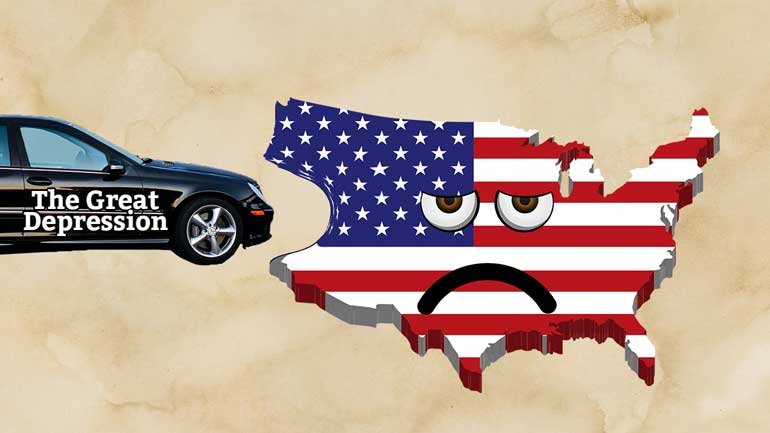ShmoopTube
Where Monty Python meets your 10th grade teacher.
Search Thousands of Shmoop Videos
U.S. History 1877-Present Videos 173 videos
Have you ever told one of your siblings to stop poking you, only to have them do something like hold their hand right in front of your face instead...
John D. Rockefeller. Greasy robber baron, or philanthropic saint? Why not both? Boy, that's a weird combination...
Today we'll learn about plans to assimilate the American Indian population after reconstruction. If you've ever seen Star Trek, you'll know that fo...
U.S. History 1877-Present 3: Pitchforks and Platforms 4617 Views
Share It!
Description:
Today's lesson: Farm Co-Ops and The Granger Laws. No relation to Hermione.
Transcript
- 00:04
The world of agriculture kind of got left behind by this new wave [Agriculture in ocean behind technology wave]
- 00:07
of technology sure farmers had new machines like steam and gas powered
- 00:12
tractors but only a few farmers had those mostly big farmers in Great Lakes [Tractors appear in big lakes]
- 00:16
states we had lots of industry and money flowing through them farmers in the
- 00:20
south the plains and the West however were farming in the Stone Age like they
Full Transcript
- 00:26
had woolly mammoths pulling plows and crazy well the South was the worst off [Woolly mammoth pulling plow]
- 00:32
mostly because the south leaders would not industrialize after the war one
- 00:37
because they leaned on the manual labor of sharecroppers instead and two because [Workers raking the soil]
- 00:42
they associated industrialization with those darn northern Yankees and there
- 00:46
was nothing worse than acting like a Yankee and then there were the Great
- 00:52
Plains where there were no big cities in this period and no big business and no [Open plain fields]
- 00:56
banking really just farmers stuck in much the same position as farmers in the
- 01:01
south kind of subsistence living well in the West small farmers were in the same
- 01:05
boat and this boat was not shipshape when the railroads finally crossed the [Man sinking in ocean with boat]
- 01:12
nation and expanded to every region farmers were glad at first the days of
- 01:17
hauling crops to market in a horse-drawn wagon were over they could get their [Horse and wagon appear on farm field]
- 01:21
crops to market much faster with trains which would allow them to ship more
- 01:24
crops than ever but things got ugly fast the railroads were run by big money back
- 01:31
in the Big East and the money guys made mad stacks by [Man with long list of bill]
- 01:35
overcharging farmers for delivery they also forced farmers to agree to all
- 01:39
kinds of binding condition or else and if you think about it if you apply
- 01:44
manual labor against machine labor or machine aided manual labor well you can
- 01:50
harvest a whole lot more crop with man plus machine than just man so you can [Machine with lots of crops]
- 01:55
imagine that the man plus machine people were able to sell corn and wheat and all
- 01:59
that kind of stuff for a whole lot less money than the farmer who's just kind of [Man in grocery store surrounded by veges]
- 02:03
doing it all himself shipping crops by rail actually ended up
- 02:08
driving plenty of farmers into bankruptcy well who could save the [hammer smashes piggy bank]
- 02:12
farmers well themselves together farmers formed
- 02:15
an organization called The Grange yeah it sounds like a nickname for Hermione
- 02:20
Granger but really it was short for the National Grange of the order of the
- 02:25
patrons of husbandry husbandry means raising livestock no one knows why [Woman appears beside a cow]
- 02:31
well the Grange was originally formed in 1867 by a Department of Agricultural
- 02:36
employee named Oliver Kelly he took a little tour of Virginia and was so [Oliver Kelly appears in Virginia]
- 02:40
horrified at how bad farming conditions were that he said I got to do something
- 02:45
Grange members paid dues and the money was used to help them in all kinds of [Coins going into Grange Dues piggy bank]
- 02:49
ways it helped them to get lessons in new better farming techniques and some
- 02:53
technology to buy and share new farm equipment like tractors combines and [Farms R Us store appears]
- 02:57
threshing machines and was also used to help sale them out if one of them hit
- 03:01
hard times or a drought or something well after the panic of 1873 the grains [Man with sack of cash in a drought farmland]
- 03:06
banded together to try to survive the economic downturn that shut off even
- 03:10
more money from farmers the Grange was all about cooperation alone its members
- 03:15
were weak but together they had the dough to buy grain elevators so that the
- 03:19
railroads couldn't charge him a good zillion dollars to use them they also
- 03:23
had the dough to buy warehouses in form cooperative farms as well as mills and [Warehouse and farmland appears under sold sign]
- 03:28
factories where they could manufacture new farm equipment well on top of that
- 03:32
they set up their own grocery and supply stores and to this day there are still [Man in grocery store]
- 03:36
plenty of signs for the old farmers co-ops in the plain state Rangers fought
- 03:41
the railroads by lobbying the federal government for regulation and they were
- 03:44
partly successful in 1876 when the government passed some regulations on [Gavel banged]
- 03:48
railroads that were called yet the Granger laws this is all pretty sweeps
- 03:53
for the grains but in the end their cooperation was there doomed
- 03:56
railroads big business and big banking fought back by accusing the Rangers of
- 04:01
being a bunch of Communists at the same time some of the co-op's Rangers created [People working in a crop field]
- 04:06
went bust ruining the farm family who had invested
- 04:09
in them but the biggest blow came from the [Men surrounded by tomatoes]
- 04:12
farmers themselves they were still over producing using the new farm equipment
- 04:17
and getting lower railroad race just lead farmers to send more crops to [Man covered by crops]
- 04:21
market supply dwarfed demand which is even worse than helping demand because
- 04:29
there were more crops than the farmers could sell the prices went down and
- 04:32
plenty of farmers started going bankrupt and since the Grange had failed to solve
- 04:35
this fundamental problem it went into a tailspin by 1876 the very year its
- 04:40
regulations were gaining traction in Washington the Grange was pretty much [Grange in the water]
- 04:44
washed up which took a while considering you know all the dirt on those farmers [Dirty farmer with mud on hands]
Related Videos
Ever heard of a "living document"? They eat and breathe just like the rest of us! They even walk around on their own two legs. Okay, fine—maybe t...
If the Puritans had gotten their way, religion would play a much larger role in lawmaking these days. Want to know more? Watch the video for all th...
What happened between the creation of the Articles of Confederation and the ratification of the current U.S. Constitution? This video analyzes the...
The Modernists thought the world had a lot of problems, and they were intent on fixing them—or at least talking about fixing them. Unfortunately,...
This video explains Federalism and the quest for a fair balance between state and national power. It covers the progression and compromises of Fede...
